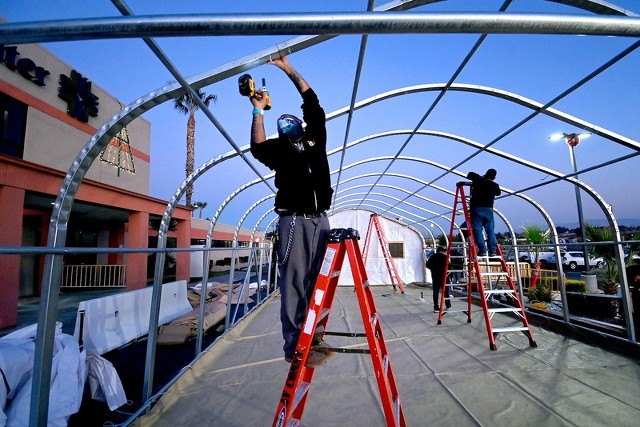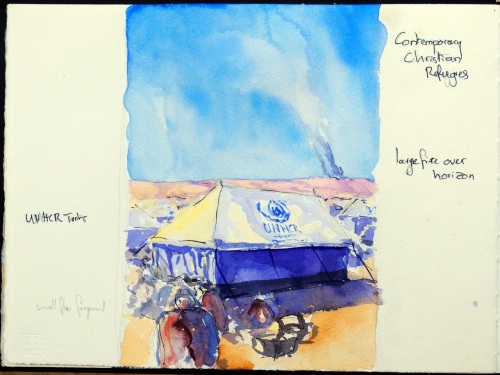Preached online to All Saints King City, Anglican Diocese of Toronto, 24 December, 2020.
Readings for Christmas Eve: Isaiah 9:2-7, Psalm 97, Titus 2.11-14, Luke 2.1-20
“But the angel said to them, “Do not be afraid, for see, I
am bringing you good news of great joy for all the people: to you is born this
day in the city of David a Savior, who is the Messiah, the Lord.” (Luke 2.10-11).
In past years it was all to easy to start a Christmas sermon
with a lament about the business of the season, by condemning the secularism that
has reduced the Christian festival to “the holidays”, by urging people to resist
the consumerism and to preserve room in their hearts to adore the Christ child.
This year, preachers don’t have those cheap rhetorical
crutches to fall back on, and honestly, good riddance to them, because this
Christmas we have precious little to do except pay attention to the message of
the angels.
This Christmas, if there’s anything and anyone in Luke’s
nativity story that we can relate to, it’s
the shepherds and their fear of the angels. Their attention
is drawn up, to the unearthly glory of the heavens, while our attention has a
very earthly focus, but the element of fear is the same.
We’re scared, and we’ve been running scared since February. We’re scared of crowds, scared of going shopping,
scared of strangers coughing, scared of that unexplained sore throat in the
morning and what it might mean. We’re
scared of losing businesses and jobs, scared of shortages, scared of people
being stupid and willfully ignorant and of the harm they can do. We’re scared of ending our days in an ICU bed,
without the touch of a loved one’s hand to comfort us.
This Christmas Eve, the angel comes to we, the fearful, and
says “Do not be afraid – for see – I am bringing you good news of great joy
for all the people.”
What is this good news?
This good news is that God knows how scared we are, and has pity on
us. The good news is that God sends his
Son to save us.
Just as this good news came to lowly shepherds, drawing them
out of their isolation in the darkness, bringing them into the presence of God
there in the manger, so this good news comes to us. This good news draws us out of our isolation,
draws us out of quarantine, draws us out of the loneliness of our homes and
apartments, and brings us into the light and life of Jesus.
This good news draws us out of our isolation and into
communion with God and with our neighbour.
This good news gathers us together in the grace of God, it holds us in
the compassion of Jesus, making us new together as new creations in
Christ. This good news will hold us
safe in the mind of God after we pass over into the company of the faithful
departed and the company of the saints.
The good news is that Jesus, who went down to the grave and back up to
the Father in heaven, will not leave us in our dark loneliness and isolation.
This good news is not just a sentimental or fond idea – it wouldn’t
be good news if it were not real. The
German theologian Dietrich Bonhoeffer, who lived in the darkness of Nazi Germany,
said that an idea cannot save us. Only
Christ, he wrote, “who must be understood as having become human”, can save us,
for “only he can redeem real human beings.
Everything depends on Jesus’ existence in history”.
This good news is that Jesus is as real to us now, in the
time of Covid, as he was to poor shepherds in the time of Caesar Augustus. His
salvation is real, real to us stuck here in lockdown, real to us who can’t go
to church, real to us who can’t be together in warmth and joy with friends and
family.
Like the shepherds who go back to their dark fields, we must
remain in the isolation of lockdown for some months to come. But, like the shepherds, we have heard the
good news and we know one great thing.
We know that Christ is real, that Christ has come into our world, that
we are not alone, but always in the presence of the one who loves us, calls us,
and saves us.








